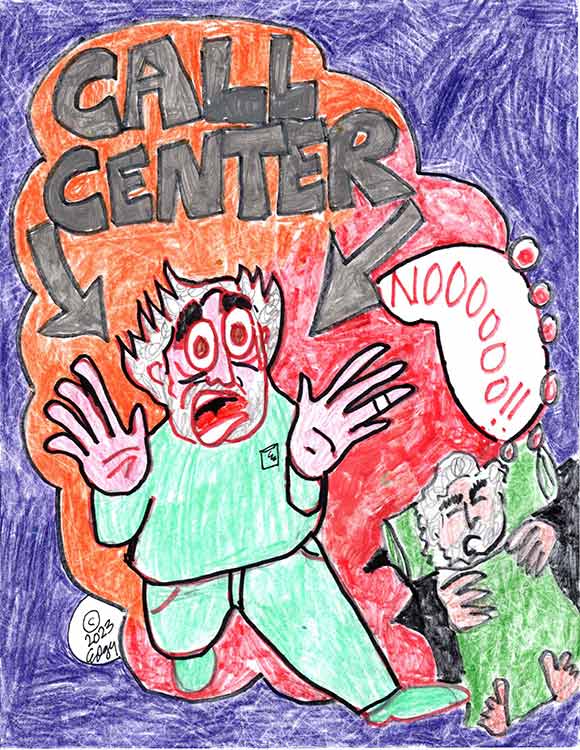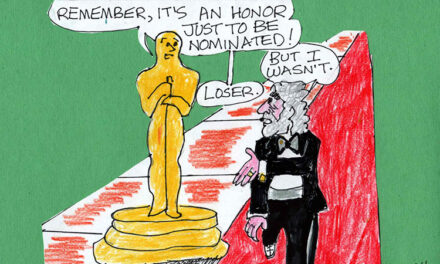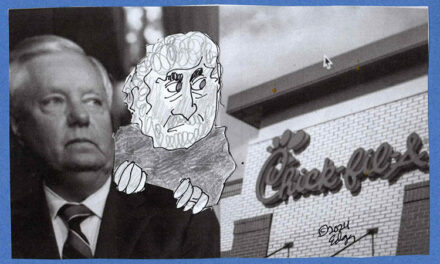Is Being “On Call” an Honor or a Curse?
Some thoughts on the waiting game
By Ed Goldman
Being “on call” is my least favorite status—and has always been. It’s good I’m not a doctor, an EMT or a Broadway understudy.
The latter, as you may know, is someone trained and rehearsed to go on stage for the star (usually) of a play. The understudy’s contractual mandate is to be no more than 10 or 15 minutes away from the theatre until Act Two begins, the presumption being that if the star already got through that much of the show, he or she isn’t likely to collapse at that point—though that’s happened, too.
I’ve often thought it was my years as my wife’s caregiver which, after she died, determined me to never be on call again. I’m not referring to the actual caring for her, which was a privilege, but rather to how often her very reluctant admission, “I guess maybe I don’t feel well”—for her, a non-complaining Midwesterner, this was tantamount to saying the house was on fire—led to speedy wee-hours drives to the emergency room. I know this sounds a tad precious but it was only when I finally crawled into bed each night that I’d allow myself to kick off my running shoes rather than remain on alert (though I did learn to slide into them, laced or not, in record time).
But this obsession of mine to not be on call started many years before I was a caregiver. I got to thinking about it the other night while waiting to hear if someone was going to come over, and when, and realized it began in childhood—and on two fronts.
The first was whether my dad would return home when he was out fighting an enormous fire in New York City’s Harlem (where I was born) or the Bronx (where I was raised). The second was when some kids in the building I lived in when I was five or six years old said they were going to come by later to our third-floor apartment and invite me to a Halloween party being held on the sixth floor.
I waited for an hour then told my mom I was going to bed. A few moments later our doorbell rang and five kids were in the hallway yelling, “Edward, Edward! Come to our party!” It was the first time in my life I choked up from happiness and I ran to greet them and be whisked away to the party, of which I have no memory whatsoever.
It’s only in later years that I’ve wondered if my mom, seeing how disconsolate I’d been at being ignored, called upstairs and demanded that the kids’ parents explain why I was being excluded. My mom would have done that for my older brothers and me. I wish to this day that I’d acknowledged that Momma Grizzly trait of hers before she died in 2006.
But I do remember this: I was ecstatic at being “collected” by my little pals—and at the same time I folded into my heart how crushed I had been to be left waiting. “On call,” one might say.
Now, I haven’t always minded being on call.
When I was a young reporter, being on call was just part of the job: one couldn’t dash out and cover a plane or car crash, a murder or a hate crime until it occurred. I thrived on the adrenaline coursing through my veins as I sat at the city desk waiting to have the editor, Frank Andersen, yell at me to get to the tarmac, street, bar or house where mayhem was either going down or just had. He kept a police radio on his desk, alongside the largest and fullest ashtray I’d ever seen. It resembled a tureen but its contents were stubbed-out cigarettes, not uneaten okra.
Years later, I spent two-and-a-half years as an assistant director of the University of California, Davis, Davis Medical Center (my last real go-to-a-workplace job, by the way). Every 10 or 11 days I was designated an “AOD,” which meant either Administrator On Duty or Administrator Of (the) Day. To me, it was pure stupidity: it meant that I, with zero medical or emergency training, would be paged in the middle of the night to decide, for example, if a patient could be transferred from another hospital to ours to save his or her life.
When I got that specific call, I asked the caller, who was a medical doctor and in charge of the emergency room, why on earth he’d ask the likes of me to make a decision like that. “Protocol,” he said, then added angrily, “And pretty goddamn ridiculous if you ask me.” We were in violent agreement.
The next morning I was summoned to the hospital director’s office and asked why I’d approved the transfer. “Because it sounded like life and death,” I said.
“Well,” he said sternly, “it was life or death. And the patient died.”
I said I was sorry. “You should be,” the director said, “because he died here. You know what that means? It’s now part of our mortality record.” I should mention that at the time, the Med Center was on the verge of losing its accreditation—which it did for a few months—because it had some pretty dismal survival numbers in two of its 110 clinics.
That was when I slipped from my belt the little AOD pager I wore every 10 or 11 days and placed it on my boss’s desk. I said I was going home for a few hours and wouldn’t be an AOD again. He saw I was upset, stood, walked around his desk and patted me on the shoulder. “And will you be honoring us by coming back today?” he asked mock-jauntily.
“I’ll let you know,” I said—then couldn’t help but add, “Wait for my call.”
Don’t forget! A new Goldman State Podcast drops every Friday!
Ed Goldman's column appears almost every Monday, Wednesday and Friday. A former daily columnist for the Sacramento Business Journal, as well as monthly columnist for Sacramento Magazine and Comstock’s Business Magazine, he’s the author of five books, two plays and one musical (so far).













